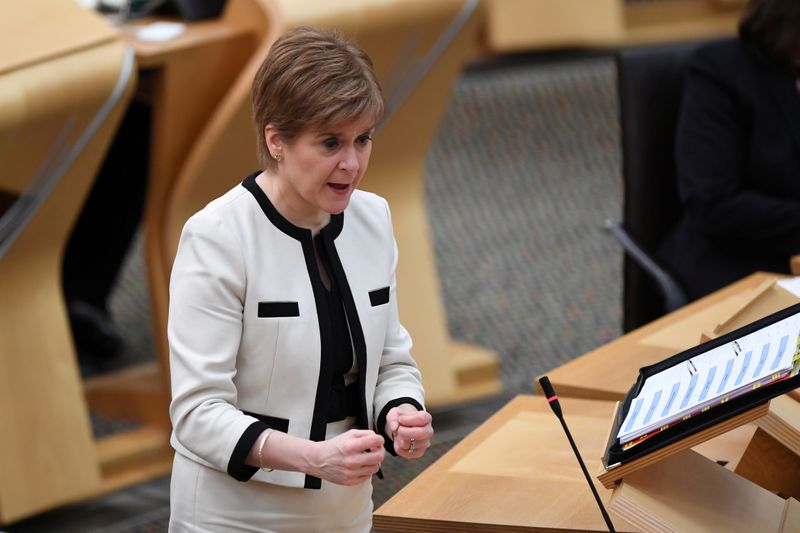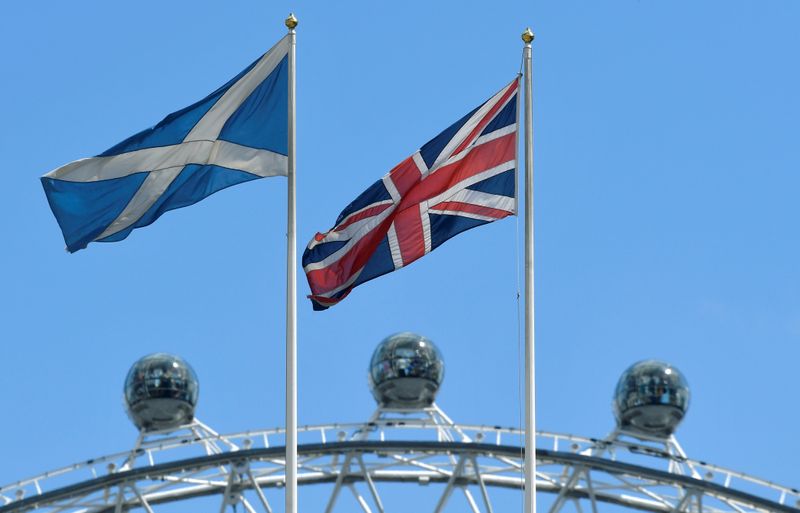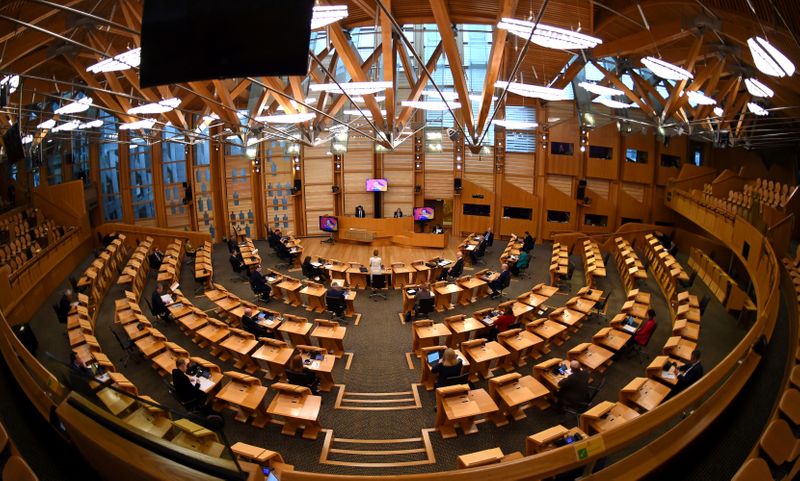LONDON (Reuters) – Scotland’s top civil court dealt nationalists a blow on Friday by declining to rule that the Scottish parliament had the right to call an independence referendum without London’s permission.
In the first skirmish of what is likely to become a major legal battle, the Court of Session in Edinburgh said it was premature and hypothetical to challenge Prime Minister Boris Johnson’s power to block a new secession vote.
But, with the Scottish National Party (SNP) set for a big win in May’s election to the Edinburgh parliament on the promise of a referendum, the fate of the 300-year-old union of Scotland with the rest of the United Kingdom is by no means assured.
Surveys suggest that Scottish voters, who rejected secession in 2014 but are now frustrated by being taken out of the European Union against their will, would this time vote for independence. Johnson may therefore need the UK Supreme Court to uphold his veto on such a vote taking place.
“I don’t see how you can avoid going to the court,” said David Hope, former deputy president of the Supreme Court.
A poll last month indicated the ruling SNP would capture 71 of 129 seats in Scotland’s parliament, the biggest majority since the assembly was formed. Scottish First Minister Nicola Sturgeon, the SNP leader, has vowed to hold a referendum early in the new parliament.
But the 1998 Scotland Act, which devolved some powers to Edinburgh and created the Scottish assembly, says matters relating to the union of the two countries can be decided only by the UK parliament in Westminster.
To stray from that, the UK parliament must agree to grant Scotland’s government powers using a “Section 30 order” – as it did when approving the 2014 referendum, in which Scots rejected independence by 55%-45%.
‘ONCE IN A GENERATION’
Johnson says that was a “once in a generation” vote and has ruled out granting permission for another.
“The political pressure may well prevail in the sense that in the end Boris Johnson has to simply give way for political reasons,” Hope told Reuters. “But without a Section 30 order, I don’t see how a measure which directly attacks the union can get away with it.”
The SNP says it will go ahead regardless, and force Johnson to test the issue in court.
Hope doubted whether it could succeed.
“They are trapped within a statute which is very carefully drafted,” he said. “There is an argument, I suppose, about the democratic will of the people, but I don’t think that arrives in the provision of the Scotland Act, because it (the Act) is looking at both sides.”
However, Professor Aileen McHarg, a UK constitutional law expert from Durham University, said there were “respectable arguments” for concluding that the Scottish Parliament did have the right to pass a referendum bill without London’s approval.
Facing such legal hurdles, some nationalists believe the SNP should either push ahead with a referendum, with or without a legal basis, or try to make May’s election a proxy vote on whether Scotland should be independent.
“Court a gamble plus (Westminster) could bring in legislation to ‘clarify’ powers of Scot(tish) Parl(iament),” Angus MacNeil, an SNP member of the Westminster parliament, tweeted last month. “Then the opportunity is gone. Use the May Election”.
Hope and McHarg both said a vote held without legal authority, similar to one in Catalonia in 2017, had little prospect of success.
For one thing, without international legitimacy, Scotland would have little prospect of rejoining the European Union, as the SNP wants.
“I think we are talking about a lawful referendum or no referendum at all,” McHarg said.
(Reporting by Michael Holden; editing by Guy Faulconbridge and Kevin Liffey)
























